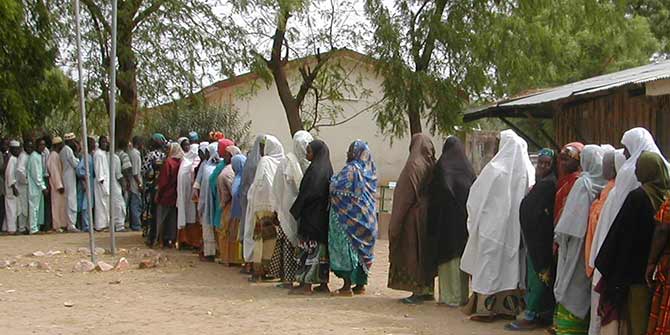Dorcas Gwata and Tarik Endale analyse the top priorities for Dr Tedros Gebreyesus as he takes over the leadership of the World Health Organisation.
The global health community is alight in African colours, the continent’s voice has been amplified with the appointment of Dr Tedros Ghebreyesus as Director General of the World Health Organization (WHO), the first African to hold this post. Dr Tedros brings a depth of experience in public health given his previous role as Ethiopia’s Health Minister (he was also Foreign Minister from 2012-2016). He understands the global health platform, and with Africa carrying the world’s heaviest burden of disease with increased vulnerability to outbreaks, the Ethiopian will need to draw on his knowledge and experience to address the global health challenges that sit heavily on the African continent and beyond. His competence will be measured on his ability to deliver on core and emerging issues. He comes into office against the backdrop of a catastrophic Ebola crisis in which WHO was criticised for a slow response, he will need to rise above the challenges and deliver on elements that he specified.
According to his Vision Statement, Dr Tedros’ has put forth five major leadership priorities for his tenure as WHO Director General, the first of which is “Health for All.” A key underpinning of this priority is the push for Universal Health Coverage. Former Director General Margaret Chan once said that Universal Health Coverage is “part of her DNA.” In this, Dr Tedros is following in her footsteps by stating that “all roads lead to universal coverage.” This includes commitments to strengthening primary health care, which comes just in time for the 40th anniversary of the landmark Alma-Ata Declaration on primary healthcare, and increasing access to life-saving products as demonstrated by his support of the recent United Nations High Level Panel on Access to Medicines report.

Photo credit: Russell Watkins/Department for International Development
This ties neatly into his second priority of public health emergencies. Mirroring the language and aims of the International Health Regulations, this means strengthening the ability of member states to prevent, detect, and respond to public health threats. Ensuring a proper defense against outbreaks also requires the WHO to strengthen their own ability to lead and coordinate effective and rapid responses through the reformed Health Emergencies Program. The importance of these improvements were made painfully clear during the Ebola outbreak in West Africa, where weak country health systems could not cope on their own and the sluggish and poorly-coordinated global response led to countless more deaths.
Women, children, and adolescents feature strongly in his top priorities for the future direction of the WHO. Across the spectrum of health, women, children, and adolescents often suffer from a lack of access to services, increased vulnerability in humanitarian settings, inattention to their unique health needs, unbalanced representation in leadership, and a dearth of data at the intersection of gender and health needed to develop appropriate programs and policies. Dr Tedros has stated that he plans to “re-orient the WHO’s approach” on the matter, to which advocates for women’s health such as Shannon Kowalski of the International Women’s Health Coalition have rebutted with demands such as expanded access to safe, legal abortions (particularly important in the face of the “Global Gag Rule” imposed by the US), robust attention to ongoing Zika transmission, and ensuring that universal health coverage does not leave women and girls behind.
Fourth on the new Director-General’s list of priorities is addressing the impact of climate and environmental change on health. Currently, 12.6 million people die each year due to unhealthy environments and if trends continue as they are, climate change is expected to cause approximately 250,000 deaths per year between 2030 and 2050. The WHO board endorsed a work plan on climate change and health in 2015 to push the development of partnerships, awareness, evidence, and public health responses to reduce contributions to future harmful climate change and reduce health vulnerabilities to the damage that has already been done. The continued commitment of the organisation under the stewardship of Dr Tedros will be crucial to improved implementation of the Paris Agreement on climate change, which so far has been ratified by 147 of the 197 parties to the convention.
Finally, Dr Tedros has promised to deliver a “transformed WHO” as “we live in a changing world, and WHO must be able to change with it.” He hopes to regain the world’s trust in the body’s ability to lead the effort towards a healthier planet by reforming how the organisation runs, responds, measures performance, and attracts talent and funding. This looks to be the most critical and by far the most daunting piece of his proposal. The WHO has recently come under fire for spending more on travel expenses than on any disease program other than polio, which is particularly pertinent as the possibility of polio eradication closes in, putting the massive amount of funds generated by polio programs at risk. The World Health Assembly just approved a 2018-2019 budget of US$4.4 billion. However, this money has to be fundraised and the leading donor, the United States, has proposed massive reductions in global health funding while the second leading donor, the Bill and Melinda Gates Foundation, have stated that they will not compensate for any of that lost funding. To address this, Chelsea Clinton and Devi Sridhar have proposed that he quickly cement this vision into clear and transparent policies in order to win back confidence and potentially gain increased dues and voluntary contributions. He has already put forth plans for a professional fundraising office, similar to that of UNICEF.
When asked how he intended to approach looming funding issues, Dr Tedros concluded that “we have to make our case. We have to use champions to help countries and donors understand the benefits of WHO. We have to prepare, just like a court case.”
Dorcas Gwata (@zambezi40) is a Global Mental Health Specialist, and a visiting lecturer at the London School of Hygiene and Tropical Medicine.
Tarik Endale (@the_etheropian) is an MSc student at LSHTM and visiting Researcher at the Mental Health Innovation Network.
The views expressed in this post are those of the author and in no way reflect those of the Africa at LSE blog or the London School of Economics and Political Science.






1 Comments